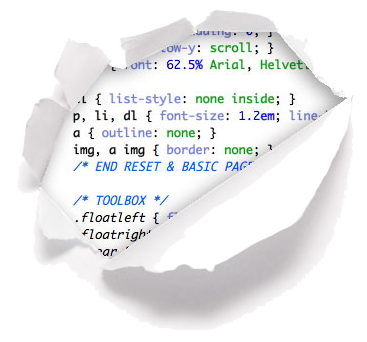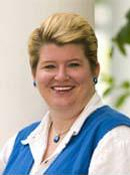About Us
- An Expertise inventory of climate-related research, teaching and extension. Projects & proposals, courses & trainings are housed in one common place.
- Networking opportunities to integrate across disciplines, build synergies for new research teams and strengthen partnerships for the development of collaborative proposals.
- Administrative support, such as strategic guidance, grant writing and coordination of team proposals.
- Competitive edge for grant proposals through their affiliation with FCI (multi-institutional, interdisciplinary) which adds institutional legitimacy.
- New hires and prospective graduate students who will be attracted to FCI member universities to join and conduct interdisciplinary climate-related research through the FCI magnet.
- A feeling of belonging to a community of science that will allow members to learn, contribute and participate in climate related research and activities.
Uh oh! We can't find the page you were looking for.

Use the search function in the top right to find what you were looking for, or go to the home page.
If you would like to report a broken link, please contact the webmaster.

Thank you for your inquiry.
One of our staff members will get back with you as soon as possible.
1. Terms
By accessing this web site, you are agreeing to be bound by these web site Terms and Conditions of Use, all applicable laws and regulations, and agree that you are responsible for compliance with any applicable local laws. If you do not agree with any of these terms, you are prohibited from using or accessing this site. The materials contained in this web site are protected by applicable copyright and trade mark law.
2. Use License
- Permission is granted to temporarily download one copy of the materials (information or software) on Florida Climate Institute's web site for personal, non-commercial transitory viewing only. This is the grant of a license, not a transfer of title, and under this license you may not:
- modify or copy the materials;
- use the materials for any commercial purpose, or for any public display (commercial or non-commercial);
- attempt to decompile or reverse engineer any software contained on Florida Climate Institute's web site;
- remove any copyright or other proprietary notations from the materials; or
- transfer the materials to another person or "mirror" the materials on any other server.
- This license shall automatically terminate if you violate any of these restrictions and may be terminated by Florida Climate Institute at any time. Upon terminating your viewing of these materials or upon the termination of this license, you must destroy any downloaded materials in your possession whether in electronic or printed format.
3. Disclaimer
- The materials on Florida Climate Institute's web site are provided "as is". Florida Climate Institute makes no warranties, expressed or implied, and hereby disclaims and negates all other warranties, including without limitation, implied warranties or conditions of merchantability, fitness for a particular purpose, or non-infringement of intellectual property or other violation of rights. Further, Florida Climate Institute does not warrant or make any representations concerning the accuracy, likely results, or reliability of the use of the materials on its Internet web site or otherwise relating to such materials or on any sites linked to this site.
4. Limitations
In no event shall Florida Climate Institute or its suppliers be liable for any damages (including, without limitation, damages for loss of data or profit, or due to business interruption,) arising out of the use or inability to use the materials on Florida Climate Institute's Internet site, even if Florida Climate Institute or a Florida Climate Institute authorized representative has been notified orally or in writing of the possibility of such damage. Because some jurisdictions do not allow limitations on implied warranties, or limitations of liability for consequential or incidental damages, these limitations may not apply to you.
5. Revisions and Errata
The materials appearing on Florida Climate Institute's web site could include technical, typographical, or photographic errors. Florida Climate Institute does not warrant that any of the materials on its web site are accurate, complete, or current. Florida Climate Institute may make changes to the materials contained on its web site at any time without notice. Florida Climate Institute does not, however, make any commitment to update the materials.
6. Links
Florida Climate Institute has not reviewed all of the sites linked to its Internet web site and is not responsible for the contents of any such linked site. The inclusion of any link does not imply endorsement by Florida Climate Institute of the site. Use of any such linked web site is at the user's own risk.
7. Site Terms of Use Modifications
Florida Climate Institute may revise these terms of use for its web site at any time without notice. By using this web site you are agreeing to be bound by the then current version of these Terms and Conditions of Use.
8. Governing Law
Any claim relating to Florida Climate Institute's web site shall be governed by the laws of the State of Florida without regard to its conflict of law provisions.
General Terms and Conditions applicable to Use of a Web Site.
Privacy Policy
Your privacy is very important to us. Accordingly, we have developed this Policy in order for you to understand how we collect, use, communicate and disclose and make use of personal information. The following outlines our privacy policy.
- Before or at the time of collecting personal information, we will identify the purposes for which information is being collected.
- We will collect and use of personal information solely with the objective of fulfilling those purposes specified by us and for other compatible purposes, unless we obtain the consent of the individual concerned or as required by law.
- We will only retain personal information as long as necessary for the fulfillment of those purposes.
- We will collect personal information by lawful and fair means and, where appropriate, with the knowledge or consent of the individual concerned.
- Personal data should be relevant to the purposes for which it is to be used, and, to the extent necessary for those purposes, should be accurate, complete, and up-to-date.
- We will protect personal information by reasonable security safeguards against loss or theft, as well as unauthorized access, disclosure, copying, use or modification.
- We will make readily available to customers information about our policies and practices relating to the management of personal information.
We are committed to conducting our business in accordance with these principles in order to ensure that the confidentiality of personal information is protected and maintained.
Who We Are
The Florida Climate Institute (FCI), is a multi-disciplinary network of national and international research and public organizations, scientists, and individuals concerned with achieving a better understanding of climate variability and change.
The FCI was initially founded in 2010 by the University of Florida and the Florida State University and is supported by the two Universities' Affiliated Colleges, Centers and Programs. For a summary of our expertise in research, teaching and outreach view our list of projects.
The Florida Climate Institute has currently over 200 Affiliated Members including scientist from universities, national and international organizations, and representatives from local governments and industry.
The Florida Climate Institute (FCI) Staff consists of a Director (UF-based) and a co-Director (FSU-based) who lead and manage FCI activities and accountability, two Coordinators, and advisors, who assist the Directors in developing, executing, and evaluating the Institute's programs and activities.
The FCI Steering Committee consists of 5 participating scientists each from the University of Florida and the Florida State University that provide scientific recommendations to the Director and co-Director.
Anyone interested in the Florida Climate Institute activities can voluntarily register on-line to become an affiliate member joining our growing network of scientists and sharing our vision to develop a sustainable future.
The FCI brings together outstanding expertise from across disciplines, universities, organizations and industry to develop centers and projects that integrate research, education, and outreach that will identify and evaluate potential societal responses to climate change and climate variability.
The Issue
Extreme weather and climate pose significant economic, food security, and environmental risks worldwide. Drought, storms with heavy rain, high winds, flooding, and freeze events cause billions of dollars in losses to the agricultural and natural resources sectors locally in Florida and globally. The Fourth Assessment Report (AR4) of the Intergovernmental Panel on Climate Change (IPCC) predicts that by the year 2100 global average temperature is likely to increase by 1.1 to 6.4°C (2 to 11.5°F), global mean sea level will rise from 0.18 to 0.59 m (7 to 23 inches), and increases in precipitation intensity and variability will increase the risk of both flooding and drought. The IPCC AR4 also states that many regions will experience considerable deviations from the global averages and there is tremendous uncertainty regarding the regional and local impacts of global changes. Some regions will warm more than the global average while others will warm less or even cool.
Mission
The Florida Climate Institute (FCI) is an 11-univeresity consortium that works collaboratively and voluntarily to foster interdisciplinary research, education, and extension to:
- Improve our understanding of the impact of environmental change and flooding on the economy, ecosystems and human-built systems;
- Develop technologies and information for creating opportunities and policies that reduce economic and environmental risks;
- Share research, extension and education initiatives for enhancing adaptive capacity and responses to associated risks; and
- Leverage our collective strengths in order to secure grants and external funding to support our goals in lieu of institutional or state funding.
Goals
- Collaborate to produce the best available science and tools to build resilience and adaptive capacity at a variety of spatial scales.
- Enhance understanding of the interrelationships among systems and society.
- Develop improved methods, technologies, and decision support systems for addressing risks and opportunities that arise from change.
- Promote and support effective partnerships between universities, municipalities and businesses.
- Share science-based information on regional change and associated societal response options.
Who We Are
The Florida Climate Institute (FCI) is an unfunded network of researchers in Florida who voluntarily collaborate on climate-related research around the world.
The FCI was initially founded in 2010 by the University of Florida and the Florida State University and is supported by the two Universities' Affiliated Colleges, Centers and Programs. For a summary of our expertise in research, teaching and outreach view our list of projects.
The Florida Climate Institute has currently over 200 Affiliated Members including scientist from universities, national and international organizations, and representatives from local governments and industry.
The FCI Steering Committee consists of 5 participating scientists each from the University of Florida and the Florida State University that provide scientific recommendations to the Director and co-Director.
Anyone interested in the Florida Climate Institute activities can voluntarily register on-line to become an affiliate member joining our growing network of scientists and sharing our vision to develop a sustainable future.
The FCI brings together outstanding expertise from across disciplines, universities, organizations and industry to develop centers and projects that integrate research, education, and outreach that will identify and evaluate potential societal responses to climate change and climate variability.
Who We Are
The Florida Climate Institute (FCI) is an unfunded network of researchers in Florida who voluntarily collaborate on climate-related research around the world.
The FCI has eleven member universities – Florida A&M University (FAMU); Florida Atlantic University (FAU); the Florida Institute of Technology (FIT); Florida International University (FIU); Florida State University (FSU); Nova Southeastern University (NSU); the University of Central Florida (UCF); the University of Florida (UF); the University of Miami (UM); the University of South Florida (USF); and Stetson University (SU). UF and FSU initiated the FCI in 2010; FAU, UCF, UM, and USF formally joined in 2012; FIU formally joined in 2013; FAMU formally joined in 2014; FIT formally joined in 2015; NSU formally joined in 2017; and SU formally joined in 2022.
The FCI is led by university branch directors consisting of two faculty from each member university. The host institution rotates among member universities and is reconsidered every three years.
Over 500 individual affiliates, including university researchers and representatives from government and industry, have joined the FCI. Anyone in Florida who works in climate research, teaching or outreach is welcome to become an affiliate.
In September 2014, the FCI and the Southeast Florida Regional Climate Change Compact signed a Preliminary Partnership Agreement to (1) seek better alignment between public sector information/management needs and ongoing university research and (2) improve coordination between the Compact and FCI universities in pursuing competitive research funding opportunities.
For a summary of our expertise, please view our list of projects.
Download the FCI Brochure:
- Letter Size (for printing on 8.5" x 11" paper)
- Tabloid Size (for printing double-sided on 11" x 17" paper)






















